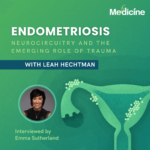Just as we plan for a wedding, so to should we plan for one of the most important decisions of our life – having a baby. Whilst good health is important throughout one’s pregnancy it is essential that we consider the time before pregnancy. A woman is born with all of her eggs but it is the maturation process that occurs 3-4 months before she ovulates that significantly influences the health of the foetus and eventual child. There are countless studies indicating that nutritional deficiencies, illness, toxin exposure and other factors all influence the health of the egg up to a minimum of 100 days prior to ovulation.
It is important to remember that fertility is something for the couple to work on together. The male’s role is just as important. Sperm take on average 72-76 days to develop, mature, be stored and finally ejaculated. As such, a man’s health 3 months prior to conception can significantly influence pregnancy outcomes. Similarly to females, a male should prepare during this preconception period to ensure the best information is passed on through their sperm.
There are alarming statistics regarding miscarriage, stillbirth, infertility, increased prematurity and other concerning considerations which are believed to have been caused by our modern lifestyles. Environmental pollution, poor nutrient levels in soil and foods, polluted water, toxic farming methods, heavy metal exposure, poor diet, lack of exercise, and many others are all believed to be involved.
It is important to remember that we all have choices and that we can choose to make changes that will not only improve our health but the subsequent health of our children and future generations.
Supporting your health
An easy way to think about it is to treat your body as though were already pregnant at least 3-4 months before you actually fall pregnant.
Important key areas include:
Dietary
Be conscious of what you put into your mouth and what is in your environment. Any toxin exposure can and will influence your gametes (eggs and sperm). Sperm are even more vulnerable than eggs to toxic exposure and nutritional deficiency. Organic foods are higher in nutrients and are free from harmful pesticides, herbicides, fungicides and other chemicals.
Weight stabilisation
Clean up your diet and reach your healthy weight range. Being under or over weight can contribute to reduced fertility outcome.
When someone is underweight, it can compromise their nutritional status and subsequent nutrient delivery to their child. If a female is considerably underweight, she may not ovulate successfully, which understandably compromises her fertility.
Excessive weight is challenging for multiple reasons. Anyone that is overweight knows that his or her body simply doesn’t function the way it should. They are acutely aware of restrictions of obvious signs such as reduction to breathing or fitness or are aware of subtle changes such as increased sebum production on the skin or digestive difficulties and poor nutrient absorption. It is also important to remember that fatty tissue stores toxins. Often people will try to lose weight but it simply won’t shift due to toxin accumulation in adipose (fatty) tissue. Supporting the organs of elimination including the liver, digestive system and urinary system enables detoxification and clearance.
Avoid recreational, environmental and medication derived toxins
Pre-pregnancy is not the time to continue bad habits. Countless studies link alcohol, drugs, some medications, caffeine and smoking with birth defects, miscarriage and reduced fertility. It is important to focus on wellbeing and optimal health.
Male specific
Protect the testicles (sperm production sites) from excessive heat
- Wear loose cotton boxer shorts
- Avoid spas and saunas
- Avoid wetsuits (surfing)
- Avoid tight bike shorts and bike riding
Reduce radiation exposure
Radiation comes from simple things like mobile or cordless phones, wireless connectivity or aeroplane travel. The idea is to be realistic and not assume that life won’t continue. It’s about simple things like reducing how much time you speak on your mobile and absolutely turning it off at night and leaving it in another room. Turning wireless modems off at night is also a good idea and make sure – men especially – don’t walk around with mobile phones in your pocket.
In the preconception period it’s optimal to reduce your flight travel and obviously in the first trimester reduce (or avoid if possible) as well. Ideally it is best to remove all electromagnetics and radiation sources from the bedroom especially. Get rid of the alarm clock, TV and bedside lights and go back to basics – use candles in the bedroom and book lights (battery powered) for reading. Just think about the effects of the power cords running under the bed while you sleep… Once you try it without you’ll never go back!
General health strategies
Important key areas for preconception health are:
- Ensure that you drink enough water and have adequate hydration
- Encourage (or start) regular exercise – aim for at least 30-40 minutes per day
- Reduce stress levels as much as possible both in your work, home, emotional state and environment
A healthy body is a fertile body
Build up your nutritional status and consider seeing a healthcare practitioner to tailor a dietary plan and supplement regime. Establishing good nutrition before you conceive helps both you and your baby be as healthy as possible throughout the pregnancy and beyond. Next article we’ll look at specific nutrients required in more detail.
Remember, the gift of preconception care is that it allows you to start being the parent you want to be even before the little one arrives.




